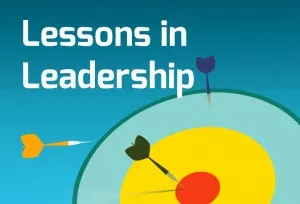The Most Important Thing For Startups is Right Culture And Right Team - Sandeep Singhal, Nexus Ventures

While building a product tech venture in India requires a lot of effort - of course money being one - but more critical to success is building a right team, a great product and market fit, and a culture that thrives on innovation and excellence. While we have seen many startups come up in the last few years, some of them have definitely followed a disruptive growth pattern. I will continue to decode some of the key ingredients for this success in the coming few articles, and today, here my colleague Aditya Kulkarni (a product guy himself) and I had the good luck of having an inspiring conversation with Sandeep Singhal and learn from the man who can clearly be regarded as one of the sharpest VC in the Indian industry with a knack for constantly funding and building successful product ventures. He's most well known for being the co-founder of Nexus Venture Partners, a leading investor in the Indian startup eco-system. Sandeep has successfully guided several of his investee companies through tremendous growth, and in many cases, successful exits.
Last year, according to some estimates, 500+ product startups were founded in India, all raring to go and be global players. What's interesting is the passion and the DNA of some of these companies. With just a little bit of polish and support I am sure most of them will go on to become product successes.
In this interview Sandeep freely shares some learnings which we all need to consider and see how we can implement in our ventures.
YS: Nexus has been a visionary in the enterprise software area with your investments in enterprise startups. How did this come about? How did you foresee the rise of enterprise software startups?
Sandeep: A lot of the foresight came from our experience with the portfolio companies. We saw very early on, the shift that was happening in the industry towards cloud infrastructure, consolidation through outsourcing etc... These trends were very strong, and having a presence in the US through our office there really helped. Large enterprises were looking for solutions to be more flexible, more agile and to reduce costs, and it was a very large opportunity.
YS: Having this early insight into the market must have been very powerful. So are you now moving deeper into enterprise?
Sandeep: Yes, absolutely! As we saw these changes, we realized that multiple areas were getting impacted. Mobility, cloud delivery of products and service, social networking, both inside and outside the enterprise - all these trends were feeding into each other. Today's workforce is mobile. They can work from anywhere in the globe. Enterprises need to understand these challenges, and make systems available to everyone, at all times. Enterprises need solutions for these issues now. We're also going deeper into newer areas, like analytics, Big Data and more, where we're leveraging our previous enterprise expertise.

YS: Great! Enterprise is only one area, but Nexus has also been successful in building product and tech – in both enterprise and consumer tech space. What is the secret sauce? What makes a great product and tech company?
Sandeep: If there's one thing that's the most critical factor in a startup's success, I'd say it is the team. Look at Gluster for example. When we first looked at them, it was very obvious that their core team was extraordinary. Same with CloudByte. We went in with so much faith in the company because of the team that they had managed to assemble. It was almost like 'We should back these guys because it is so hard to find and assemble this kind of talent in a startup.'
YS: Very true! A great team is truly the biggest ingredient of success. So the question is then how do you build a great team? Is there enough product and tech talent in India to build truly world class companies?
Sandeep: We believe so. There has been a great shift in the market over the last several years. There is a lot of talent that has been trained over the last decade by multi-nationals in India. What started off as mere maintenance and low-end services projects have matured into cutting edge product and technology development over the last 5 years. Real product management and product development is now happening in India. There is a lot of latent talent, but it is locked away inside the corporates right now. Slowly, but surely, this potential is going to be released and it will find its way into product/tech startups. It will take time, but there is tremendous amount of talent here.
YS: Sandeep, you've seen and built several world class startups, many of whom have had successful exits as well. What are the key learnings you'd like to share with startups that are trying to build world-class products from India?
Sandeep: I'd say the most important thing is to build the right culture, and make sure it is compatible with your vision. For example, Gluster leveraged the open-source moment quite a bit. Hiring top-class talent doesn't necessarily mean hiring people with 6-8 years of experience. Lots of great talent is in Tier-II colleges, working on open source projects, for example, that can be unlocked quite effectively by startups looking to build world-class teams. At NetMagic as well, there was a great focus on building the right culture. People enjoy working there. They're learning lots of new things, building cool products and services. The entire senior management at NetMagic has a very clear focus on being cutting edge. They've given enormous freedom to their employees to try out new things, and have reaped the rewards! At Eka, ScaleArc and our other portfolio companies as well, we've seen that if you're building something world class, people want to work with you. Building a product that's beyond what's available today excites people.
YS: At all the companies you've seen, is building a core team an iterative process? Were they absolutely sure of what they wanted to build and just went out and built it?
Sandeep: Yes, it is definitely an iterative process. Companies make mistakes, lots of moves don't work out. But then you have to buckle down and make the difficult decisions of letting go of people who are not working out. You really have to understand what motivates your employees. Engineers, for example, are looking to solve hard, challenging problems. They're looking at global issues, they want to create wealth and maybe become famous! Understanding what drives individuals and positioning your message accordingly is the key to "selling" to your employees as well. There's always a risk with tech development, but the key is to always have your ear on the ground, and listen to what your customers are saying. As long as you have the willingness and the gumption to overcome barriers, and have an agile mindset, you can keep making progress!
YS: Lastly, can you tell us what drives you? You are very involved with your portfolio companies, very hands on and help companies do what is needed. What keeps you motivated?
Sandeep: I have the great pleasure of working with smart people. Keeping up with them (many of who are smarter than me), is really a fun challenge. One needs to understand what's happening in so many areas - Big Data, mobile, analytics, consumer tech and more... and all the learning keeps me challenged. It's great to see companies grow, and the joy you experience as companies get built, as products get built and when they make customers happy is unparalleled. The key is to have fun! It is heartening to hear the focus a successful VC like Sandeep has on building teams and attention on product and tech. At YourStory, we've profiled thousands of startups over the past few years, and the one common theme that runs through successful startups is undoubtedly having a great team, solving a problem in a cutting-edge kind of way. Hopefully this conversations inspires more leaders to take the dive and produce even more world class products from India!
- Shradha Sharma and Aditya Kulkarni







